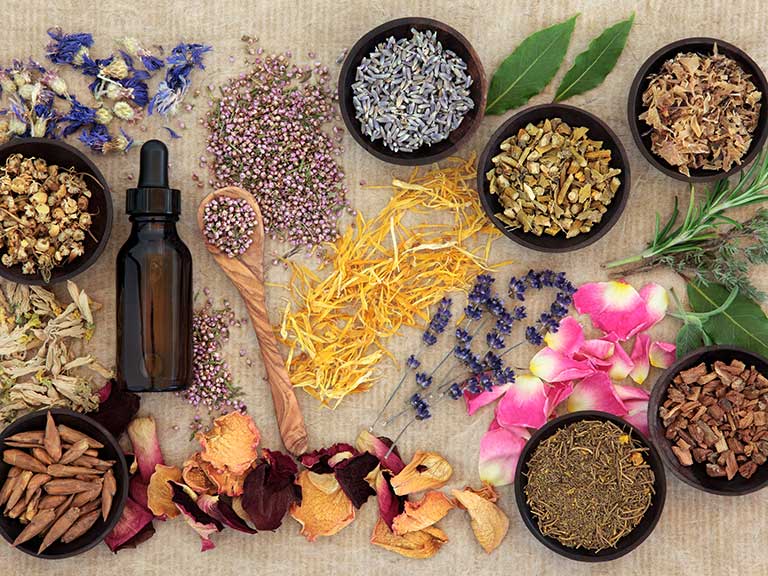Herbal Cure: Nature’s Remedy for Health and Well-Being

In today’s world, where modern medicine often comes with a long list of side effects, many people are turning to herbal remedies as a natural alternative for their health and wellness. Herbal cures have been used for centuries across various cultures, offering a safe and effective way to treat a wide range of ailments. Whether it’s managing chronic conditions, improving immunity, or enhancing overall well-being, herbal remedies have proven themselves as an essential part of holistic healing.
In this blog, we’ll explore the power of herbal cures, their benefits, common herbs, and how they can support your journey to health and wellness.
What is Herbal Cure?
Herbal cure refers to the use of plants, herbs, and natural extracts to treat illnesses, support healing, and improve overall health. Unlike pharmaceutical drugs, which are often synthetically created, herbal remedies are derived from the natural world. The healing properties of herbs have been recognized for thousands of years, with ancient civilizations such as the Egyptians, Chinese, and Indians using them for medicinal purposes.
Herbal cures work by harnessing the natural properties of plants that can influence the body’s systems. These remedies can come in many forms, including teas, tinctures, oils, capsules, and powders. Herbs contain various bioactive compounds that can support the body in fighting illness, reducing inflammation, improving digestion, and enhancing mental clarity, to name a few benefits.
Read More: ayurveda the ancient science of holistic healing
Benefits of Herbal Cures
- Natural Healing
One of the main advantages of herbal cures is that they come from nature, meaning they’re free from the synthetic chemicals found in many over-the-counter medications. Most herbs are rich in antioxidants, vitamins, minerals, and other compounds that support the body’s natural healing processes. - Fewer Side Effects
Unlike many pharmaceutical drugs, herbal remedies typically come with fewer side effects. When used correctly and in moderation, herbs can provide relief without the risk of harmful chemical reactions. For example, turmeric and ginger are well-known for their anti-inflammatory properties and have minimal to no side effects when consumed regularly. - Supporting Chronic Conditions
Herbal cures are widely used to help manage chronic conditions such as arthritis, diabetes, high blood pressure, and more. For example, Ashwagandha, a popular herb in Ayurvedic medicine, is known to help reduce stress and anxiety, while cinnamon can help regulate blood sugar levels. - Boosting Immunity
Many herbs are powerful immune boosters, helping to strengthen the body’s defenses against infections and diseases. Herbs like Echinacea, elderberry, and ginger are widely used to enhance immunity, especially during cold and flu season. - Mental and Emotional Wellness
Herbal remedies can support mental and emotional health as well. Herbs like lavender and chamomile are known for their calming effects, which can help reduce anxiety, promote relaxation, and improve sleep quality. Ginseng and rosemary, on the other hand, are known for their cognitive-enhancing benefits, supporting mental clarity and focus.
Popular Herbal Cures and Their Benefits
- Ginger (Zingiber officinale)
Ginger is one of the most versatile herbs used for herbal cures. It’s known for its anti-inflammatory properties and is commonly used to treat nausea, motion sickness, and digestive issues. Ginger also has a warming effect on the body, which can help improve circulation and support overall energy levels. - Turmeric (Curcuma longa)
Turmeric is a powerful herb used in both cooking and herbal medicine. Its main active ingredient, curcumin, has strong anti-inflammatory and antioxidant properties. It is widely used to treat conditions like arthritis, digestive disorders, and even skin issues. Regular consumption of turmeric can also support brain health and protect against cognitive decline. - Ashwagandha (Withania somnifera)
Ashwagandha is a cornerstone of Ayurvedic medicine, often used for stress relief, reducing anxiety, and promoting better sleep. It’s also known for boosting stamina and improving physical endurance, making it a popular herb among athletes. Additionally, Ashwagandha has adaptogenic properties, meaning it helps the body adapt to stress. - Peppermint (Mentha piperita)
Peppermint is commonly used to soothe digestive discomforts such as bloating, indigestion, and nausea. It can also be used topically to relieve headaches, muscular pain, and other forms of tension. The menthol in peppermint is known to provide a cooling and relaxing effect, making it ideal for relieving stress and headaches. - Echinacea (Echinacea purpurea)
Echinacea is a well-known immune-boosting herb often used to prevent and treat colds and flu. It has antimicrobial properties that help the body fight infections, and its anti-inflammatory effects can reduce symptoms associated with upper respiratory infections. - Lavender (Lavandula angustifolia)
Lavender is best known for its calming properties, making it ideal for stress relief and improving sleep quality. It’s often used in essential oil form for aromatherapy, but it can also be consumed as a tea or used in topical preparations for relaxation. - Cinnamon (Cinnamomum verum)
Cinnamon is not only a delicious spice but also an herb that offers several health benefits. It is commonly used to manage blood sugar levels and regulate insulin sensitivity. Cinnamon also has anti-inflammatory properties, making it beneficial for conditions like arthritis and other inflammatory diseases. - Ginseng (Panax ginseng)
Ginseng is an adaptogen that helps improve energy levels, combat fatigue, and enhance overall stamina. It’s also known to improve cognitive function, making it useful for people suffering from mental fatigue or memory issues. Ginseng is widely used in herbal formulations to improve mood and combat stress.
Incorporating Herbal Cures into Your Routine
If you’re new to herbal cures, it’s essential to start slowly and consult with a healthcare provider, especially if you’re dealing with a specific medical condition or taking prescription medications. Here are a few ways to incorporate herbal remedies into your daily routine:
- Herbal Teas: Drinking herbal teas like chamomile, peppermint, or ginger tea can be an easy and relaxing way to enjoy the benefits of herbs.
- Supplements: Herbal supplements in the form of capsules, tablets, or powders can provide concentrated doses of herbal remedies.
- Topical Applications: Essential oils, salves, and creams containing herbal extracts can be applied directly to the skin to address issues like muscle pain, inflammation, and skin irritation.
- Incorporating Herbs into Food: Herbs like turmeric, cinnamon, and ginger can be easily added to smoothies, soups, curries, and other meals to support health and wellness.
Conclusion: Harnessing the Power of Herbal Cures
Herbal cures have stood the test of time for a reason: they are effective, natural, and often have fewer side effects compared to modern pharmaceuticals. By incorporating herbal remedies into your daily routine, you can enjoy numerous health benefits, from improved digestion and immunity to enhanced mental clarity and emotional well-being.
As you explore the world of herbal cures, remember to consult with a professional herbalist or healthcare provider, especially if you have existing medical conditions or are taking other medications. Embrace the power of nature’s healing plants, and discover how they can support your path to better health and wellness.

Add comment